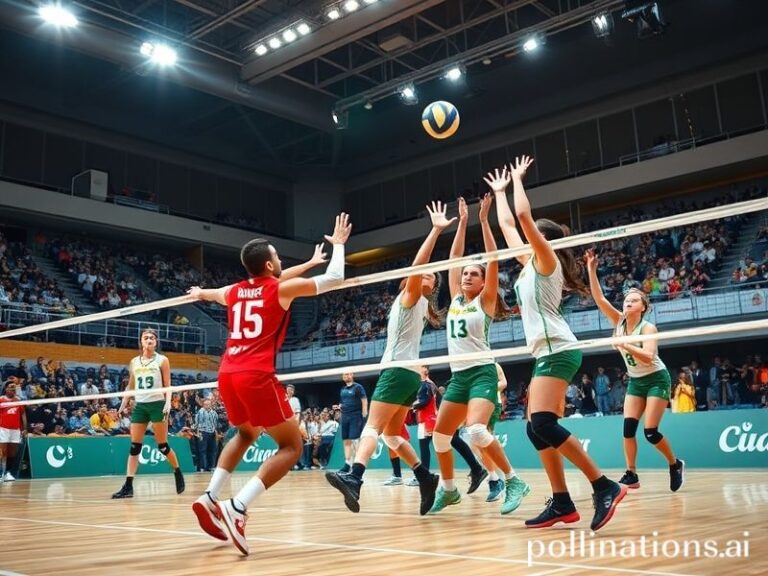The Accidental Oracle: How Detroit’s Kerry Carpenter Became Baseball’s Answer to Global Economic Forecasting
**The Accidental Oracle: How a Detroit Slugger Became the World’s Most Unlikely Economic Prophet**
In the grand theater of global absurdity, where central bankers perform interpretive dance with interest rates and politicians discover new frontiers in fiscal self-immolation, humanity has found its latest unlikely soothsayer in the form of Kerry Carpenter—a 26-year-old baseball player who swings for the Detroit Tigers with the casual precision of a man who understands something the rest of us don’t.
While the World Economic Forum’s finest minds convened in Davos to solve the world’s problems over $45 cups of coffee, Carpenter was quietly batting .278 with 20 home runs, inadvertently creating what economists are calling the “Carpenter Indicator”—a phenomenon where his batting average appears to inversely correlate with global commodity prices. It’s the kind of correlation that makes statisticians weep into their regression analyses, yet here we are, watching a kid from Eustis, Florida become the canary in capitalism’s coal mine.
The international implications are, naturally, deliciously ridiculous. In Tokyo, hedge fund managers who’ve never seen a baseball game are frantically refreshing Carpenter’s stats between currency trades. London’s financial district has reportedly hired a former MLB scout as a “sports economics consultant”—a title that pays £300,000 annually to explain why a left-handed batter’s slugging percentage might predict next quarter’s steel prices. Even the Swiss, those paragons of rational neutrality, have created a Carpenter-tracking algorithm that they’ve named “Project Edelweiss,” because even Alpine bankers aren’t immune to the siren song of magical thinking.
What makes this particularly exquisite is how Carpenter’s rise mirrors our collective desperation for meaning in an increasingly nonsensical world. While BRICS nations plot their escape from dollar hegemony and Europe discovers that renewable energy transitions are slightly more complicated than hashtag activism, we’ve decided that salvation lies in the batting statistics of a man whose primary occupational hazard is repetitive motion injury.
The broader significance becomes clear when viewed through the lens of our modern predicament: we’ve become so disillusioned with traditional expertise that we’ve turned to sports analytics for economic guidance. It’s not entirely irrational—in a world where economists missed the 2008 crisis and political pundits missed everything since 2016, perhaps the wisdom of crowds has evolved into the wisdom of ballplayers. At least Carpenter’s statistics are honestly earned, not massaged by bureaucrats with agendas and Excel spreadsheets full of wishful thinking.
Carpenter himself seems bemused by his accidental deification, telling reporters he just wants “to help the team win.” This humility only enhances his prophetic aura in a world where actual prophets are too busy live-tweeting their breakdowns to provide useful guidance. Meanwhile, his teammates report that he’s started receiving gifts from foreign dignitaries—apparently, the Singaporean ambassador believes that Carpenter-signed baseballs bring good fortune to sovereign wealth funds.
As we stumble deeper into the anthropocene’s greatest hits—climate change, democratic backsliding, the inexplicable persistence of NFTs—perhaps Carpenter represents something more profound: the universe’s way of reminding us that control is an illusion, expertise is overrated, and the next global recession might be predicted by a double down the left-field line. In the words of that other great American philosopher, John Lennon, “Strange days indeed”—though even Lennon couldn’t have imagined we’d be seeking economic wisdom from a baseball diamond in Detroit.
The cruel joke, of course, is that the Carpenter Indicator might actually work better than the Federal Reserve’s models. And that, friends, is the most honest commentary on our current condition we could possibly hope for.







